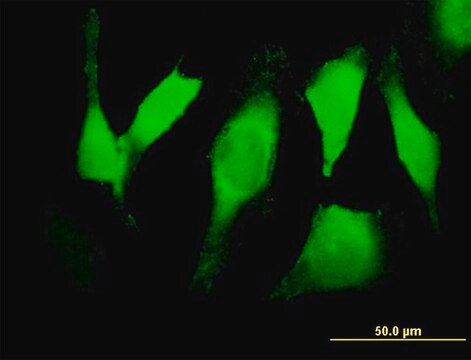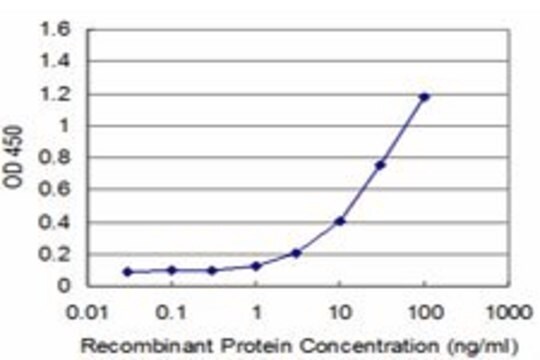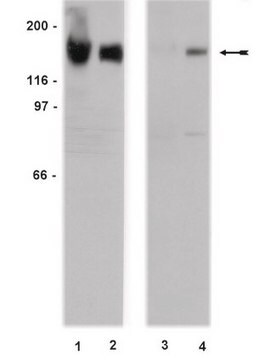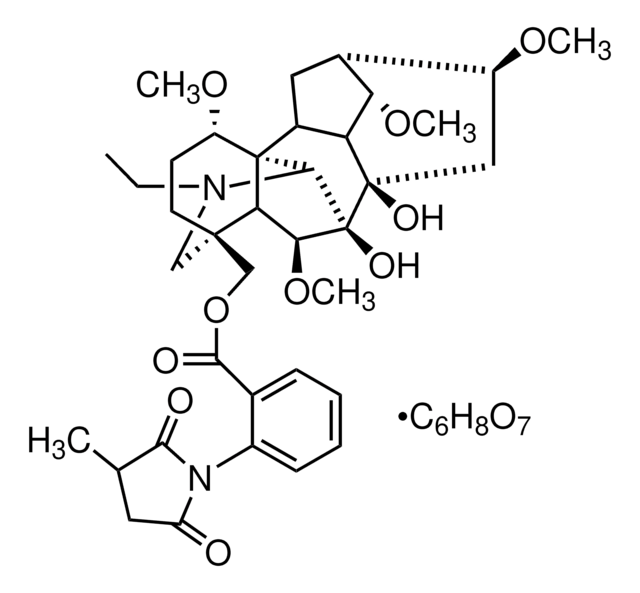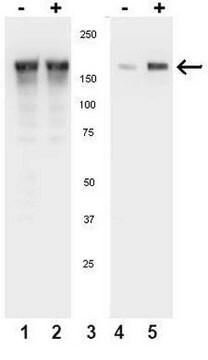07-819
Anti-phospho-EGFR (Tyr1148) Antibody
Upstate®, from rabbit
About This Item
Prodotti consigliati
Origine biologica
rabbit
Livello qualitativo
Forma dell’anticorpo
affinity isolated antibody
Tipo di anticorpo
primary antibodies
Clone
polyclonal
Purificato mediante
affinity chromatography
Reattività contro le specie
human
Produttore/marchio commerciale
Upstate®
tecniche
western blot: suitable
N° accesso NCBI
N° accesso UniProt
Condizioni di spedizione
dry ice
modifica post-traduzionali bersaglio
phosphorylation (pTyr1148)
Informazioni sul gene
human ... EGFR(1956)
Specificità
Immunogeno
Applicazioni
Signaling
Growth Factors & Receptors
Qualità
Descrizione del bersaglio
Stato fisico
Stoccaggio e stabilità
Handling Recommendations: Upon first thaw, and prior to removing the cap, centrifuge the vial and gently mix the solution. Aliquot into microcentrifuge tubes and store at -20°C. Avoid repeated freeze/thaw cycles, which may damage IgG and affect product performance. Note: Variability in freezer temperatures below -20°C may cause glycerolcontaining solutions to become frozen during storage.
Note legali
Esclusione di responsabilità
Non trovi il prodotto giusto?
Prova il nostro Motore di ricerca dei prodotti.
Codice della classe di stoccaggio
12 - Non Combustible Liquids
Classe di pericolosità dell'acqua (WGK)
WGK 2
Punto d’infiammabilità (°F)
Not applicable
Punto d’infiammabilità (°C)
Not applicable
Certificati d'analisi (COA)
Cerca il Certificati d'analisi (COA) digitando il numero di lotto/batch corrispondente. I numeri di lotto o di batch sono stampati sull'etichetta dei prodotti dopo la parola ‘Lotto’ o ‘Batch’.
Possiedi già questo prodotto?
I documenti relativi ai prodotti acquistati recentemente sono disponibili nell’Archivio dei documenti.
Il team dei nostri ricercatori vanta grande esperienza in tutte le aree della ricerca quali Life Science, scienza dei materiali, sintesi chimica, cromatografia, discipline analitiche, ecc..
Contatta l'Assistenza Tecnica.
